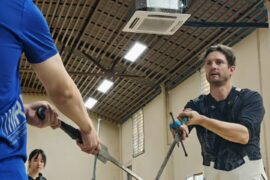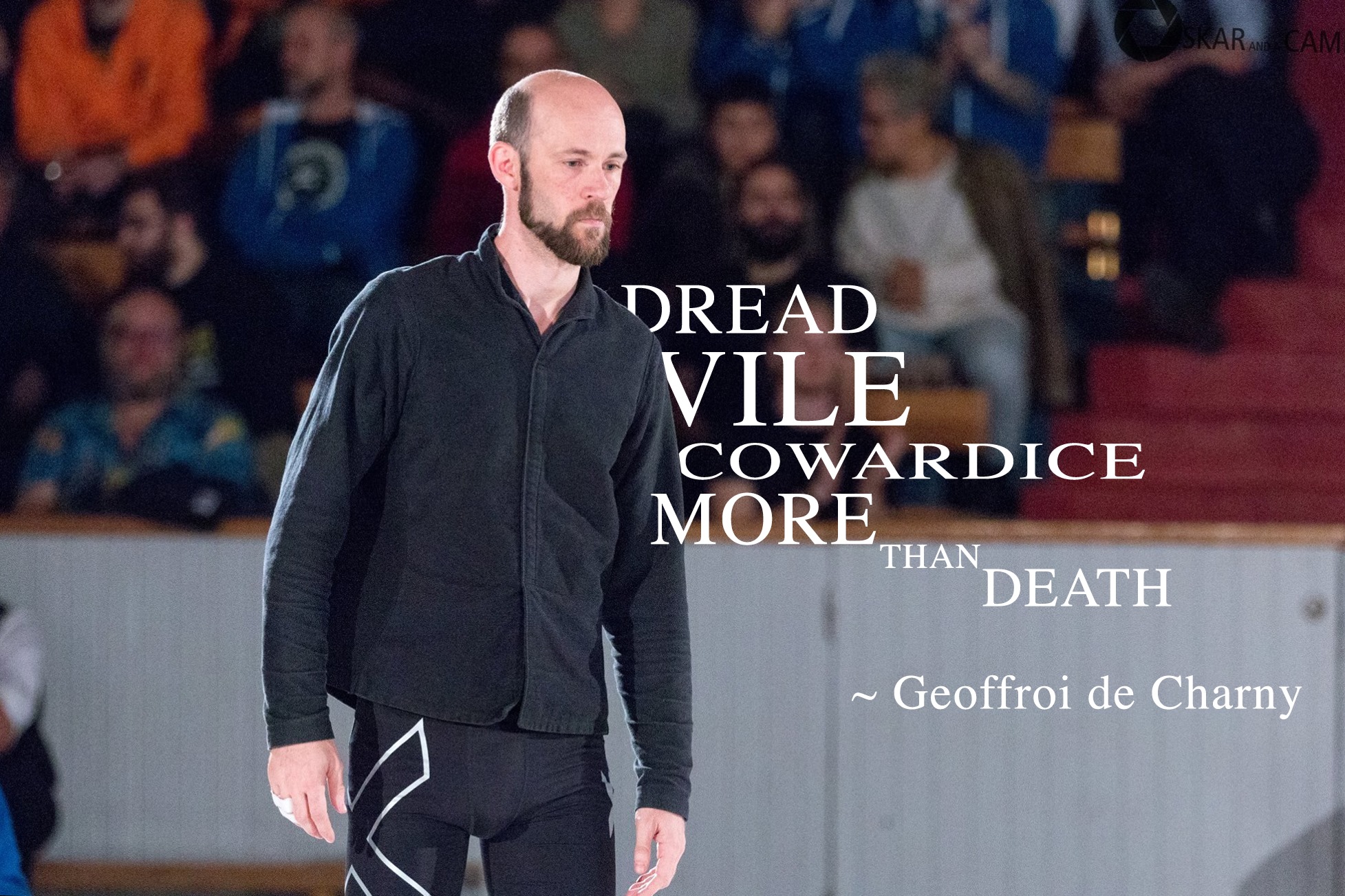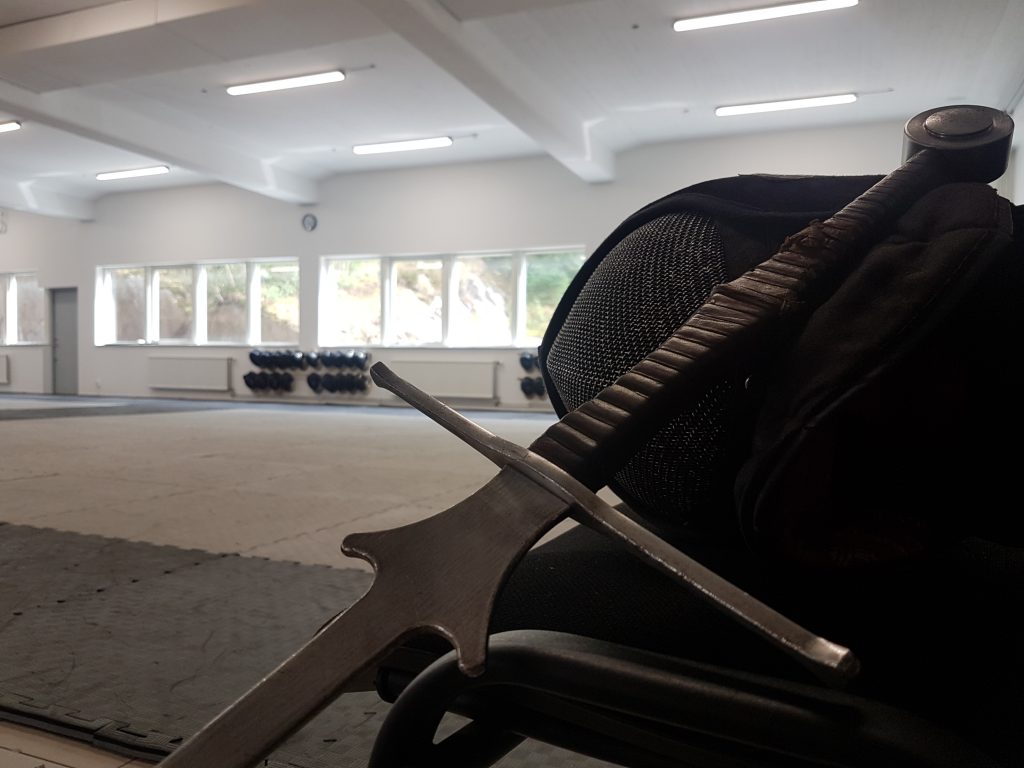
Stepping out of a packed tram, I am ever mindful not to smash some poor, defenceless person with my fencing bag. Outside the wind blows and the rain falls like arrows from the sky. The legs shiver as they try to climb a stairway to a desolate hall, dark and dreary like the weather. Whether it is through routine or with purpose that they still carry me into a changing room reeking with sweat, I cannot say.
I find myself feeling sluggish, and I imagine that perhaps you have felt similarly once or twice as well? How changing clothes and gearing up is a sluggish chore. Forcing tight socks over soaked legs takes forever. The jacket struggles against the body, not quite wanting to nestle itself properly onto the shoulders. The neck protector wraps its hands around the throat and it feels like you are choking.
On days like these, I find myself sitting down. Staring idly at a mask which stares back at me. The sword waits impatiently by my side, while I keep wondering as to why bother?
On days like these, my mind drifts towards the story of Joachim Meyer. Of his efforts to preserve the Liechtenauer tradition. To him it was his life’s greatest endeavour. He travelled across the world gaining knowledge and mastery of the blade, driven by what we can only assume was an immense passion for the fencing arts. The long declarations that came with each book seem to indicate a certain pride that borders on arrogance, but none can deny that there is also a deep love and reverence in each word. With such high regard for the arts, it is no wonder that he wanted to preserve them.
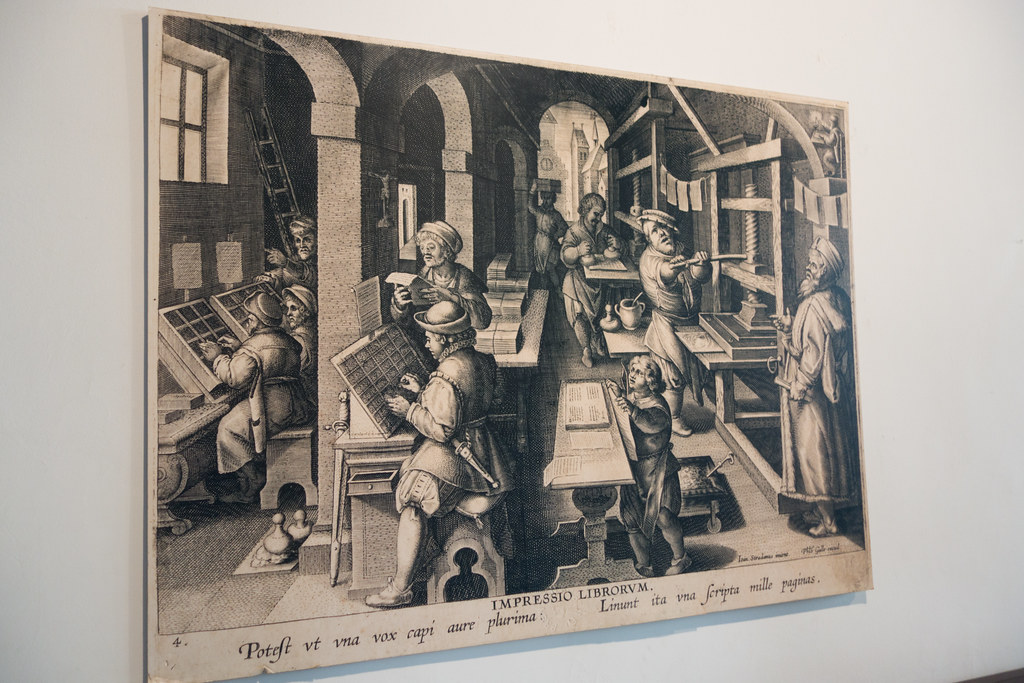
Born during the vivid age of the renaissance, he along with many others saw the rise of a strong literary culture that would rival the current verbal traditions and eventually lay the foundation of modern literature. With the development of new printing methods, books had become easier to produce, both in quality and quantity. And that led to an increase in education and a surge of readers within the middle class of society. Perhaps it is no wonder that Meyer was willing to gamble, seeing how society and technology were in a prime position for him to preserve the arts via the printing press.
It was a grand ambition and with a mere glance at one of his treatises, you can tell that he strove to be more pedagogical and thorough than any other master of the Liechtenauer tradition. Despite this, his teachings of the fencing arts were dying. The renaissance was already skirting the edge to a new and more modern way of warfare. One that would see the shift towards firearms and gunpowder. And although Meyer had his fair share of opinions regarding this new age, he could probably not deny that it was inevitable.
His books sold poorly. He was never able to make a decent living from his teachings and treatises, which resulted in him becoming indebted. With few choices left, he took up the position of Fechtmeister to a duke in Schwerin where he hoped he might sell the book at a better price and pay his debt. Currently living in Strasbourg, Meyer had to travel 800 miles by foot during a harsh winter.
Two weeks later, after arriving in Schwerin, he died.
I often wonder what he felt on such a cold journey. Did he feel regret sitting there? Realising that his actions brought him to a campfire with nothing but fading flames to soothe the shivers gripping his body.

Probably so. It is hard to imagine that the human mind could forever stay determined when faced with the consequences of their actions. A little rain and a bad mood are enough to make us sway today, and while thresholds may change, every person eventually finds themselves wavering. Poking at a fire slowly dying. Cinders vanishing in the air along with the warmth that gave enough courage to take another step. To trudge along for another day.
Through rain and snow, hardship and pain, we must face the question as to why bother? The answer always differs of course. And there is no magical answer that will ever guarantee success. Whatever answer Meyer found led him to the end. In comparison to other masters, he never became as successful. Dying while indebted offers a gloomy perspective on life. Yet I can never imagine that Meyer would have done anything differently. When he sat there, watching the final cinders of his campfire die, he still found enough passion, enough drive, enough will to complete the journey. He did arrive in Schwerin. He never turned back. He wanted to pursue the arts. To the death.
And even if the fame he accumulated in life resulted in a short flame that quickly burned out, the knowledge he left would ignite the hearts of fencers centuries later. In a way, his dream of preserving the arts came true. Through his works, they never died.
And through our hands, they are kept alive. Despite the rain falling so heavily trying to extinguish the fire, we find the drive to keep the sparks alive. To keep going for whatever reason we have. In the end, we all leave a few coals from our fire for those who follow to reignite. Whether we succeed or not, it is upon our shoulders and through our work that we inspire and help the next generation to succeed. Whether your name remains unknown or tarnished, it is a name that helped shape the future.
Take pride in yourself, knowing that you braved the hardships and lit the flame for all those to come.
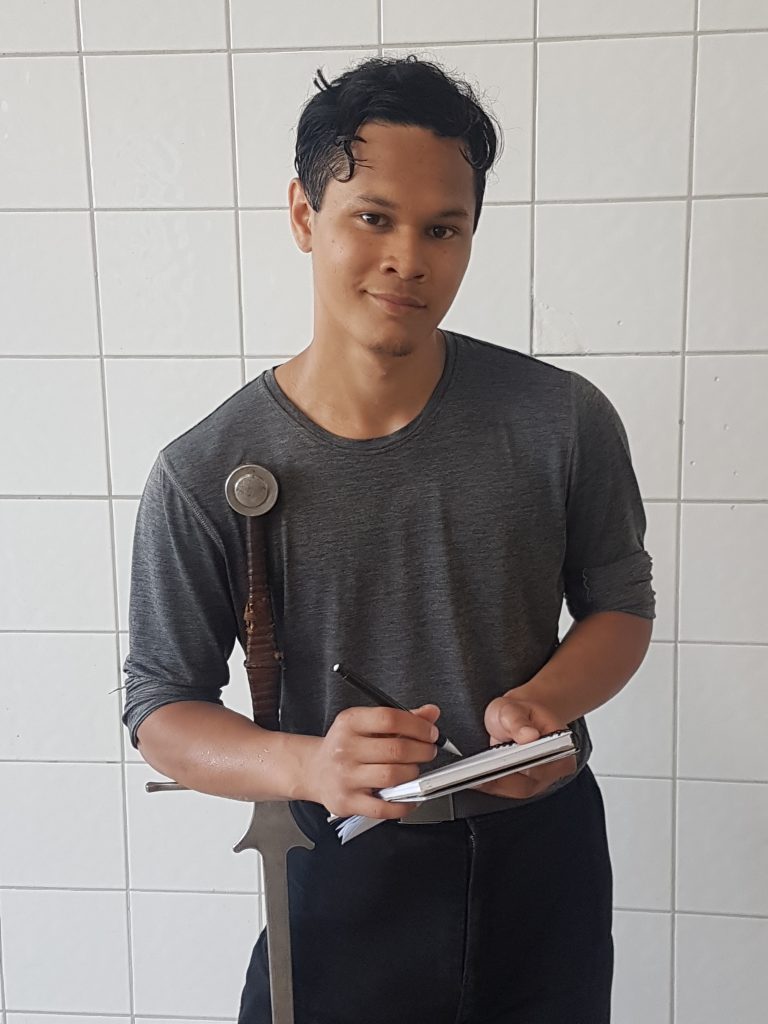
About Alexander Olsson
Currently studying literature at the University of Umeå, Alexander found HEMA at the age of fifteen and then never turned back. Training for five years with Gothenburg Historical Fencing School, he later moved on to Umeå Historical Fencing School where he serves as the assistant longsword trainer. He has won a gold medal for longsword and one for sword and buckler, as well as the Swordfish technical longsword award. As an avid enjoyer of life’s simple pleasures, he likes fencing with good music, good camaraderie and staying true to GHFS’s old motto: “Hit them in the head, that’s where they’re dumb.”



